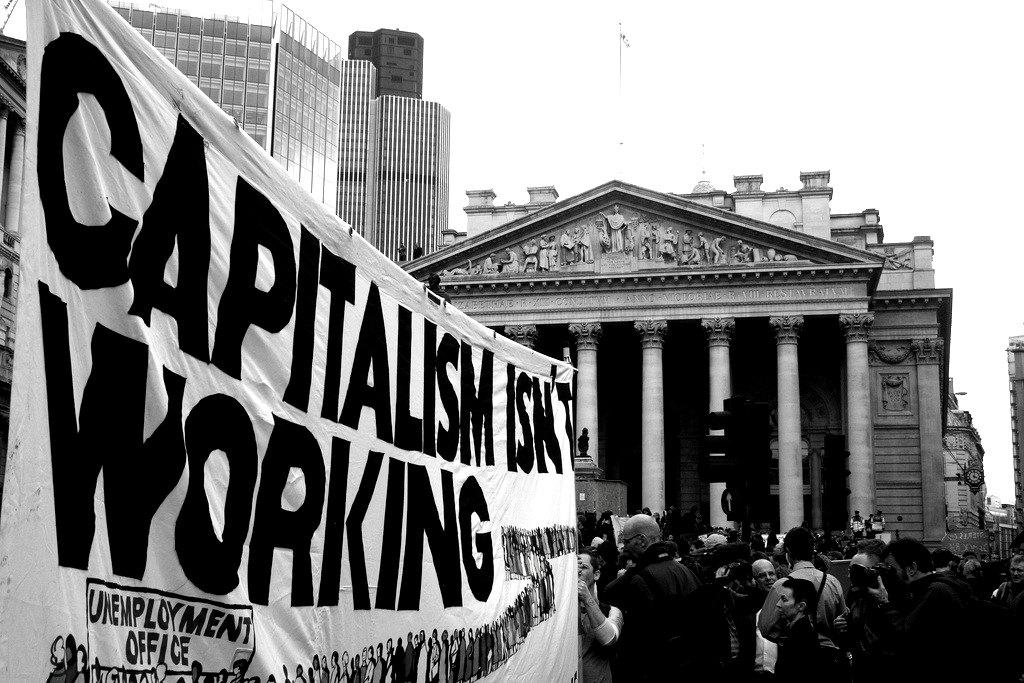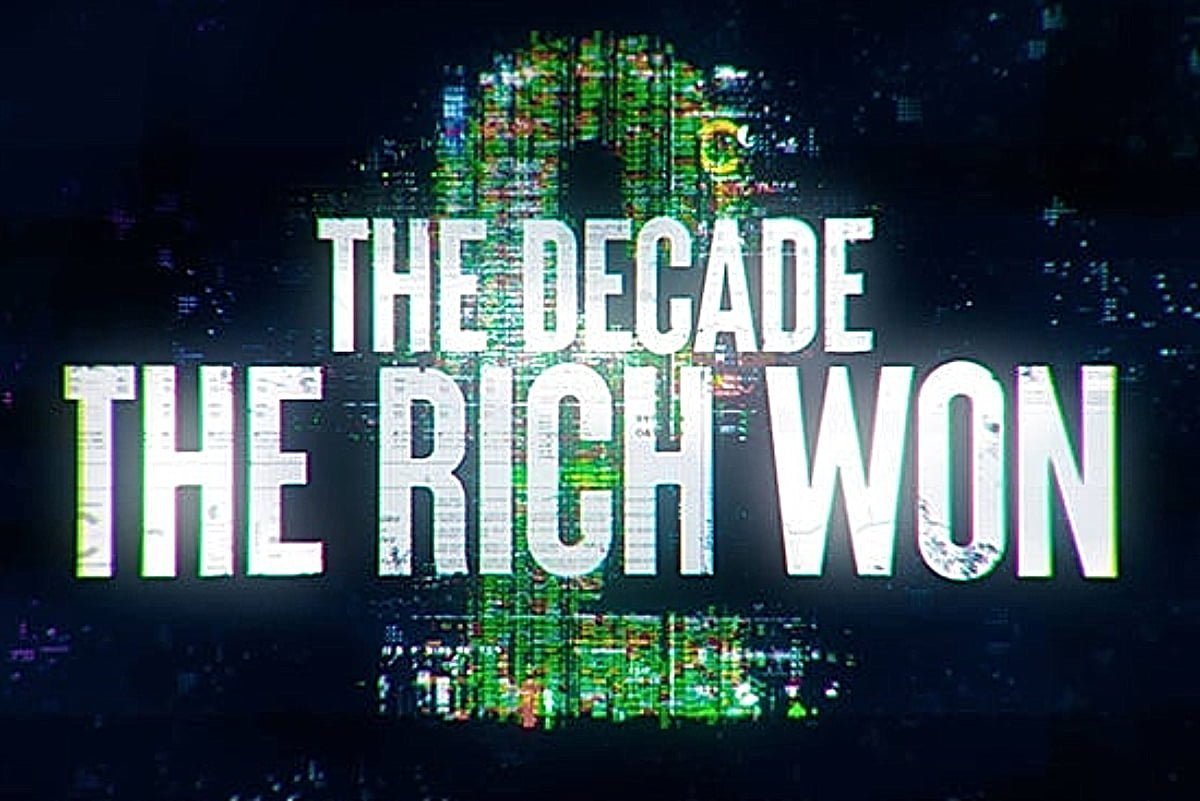A recent BBC documentary looks back at the desperate measures taken by politicians and policy makers to save the capitalist system from collapse following the 2008 crash. Over a decade later, the class divide has become a chasm.
‘The decade the rich won’, currently available to watch on BBC iPlayer, is an aptly-titled documentary and fascinating history of the UK economy since 2008.
Composed of news footage and testimony from some of the key political figures of the period, it is surprisingly candid. In parts, it is almost like a confessional: not of guilt, but of blindness, complicity, and impotence.
Bandits
Centrally, the documentary is a critique of quantitative easing (QE). Staring briefly into the abyss during the 2008 crash, the government scrambled for its chequebook and printed eye-watering sums of money to inject into the City like a “shot of adrenaline”, as former-chancellor Alistair Darling says.
British capitalism has been hooked up to this life support ever since, with £895 billion pumped in over the whole ensuing period.
But, as the documentary reveals, not only did this stimulus fail to avert a recession, it incentivised the bankers to resume the speculative orgy that led to the crisis in 2008, with the bill presented to the working class. In other words, it widened the class divide into an unbridgeable chasm.
The romp of the rich is juxtaposed with the increasing deprivation of the majority. The Panama papers and Vodafone tax scandal, for example, are shown side-by-side with a decade of the most brutal austerity.
As hedge fund manager Paul Marshall stated: “Owners of assets have all made out like bandits.” Indeed!
We are then told in the programme that real wages are lower now than 2008. Meanwhile, UK billionaires have increased their wealth by 210% since 2010.
Government ministers, bankers, and stock traders reflect wistfully on the mistakes of government policy. But as another ex-chancellor, Tory Lord Philip Hammond, correctly asserts: “It kind of misses the point. QE was just about the only weapon we had left to deal with threats of a slowdown in the economy.”
Life support
The 2008 crash, which exposed the putrid innards of British capitalism, left the government with a choice: either face immediate judgement day; or delay this reckoning by throwing money at the problem.
Capitalists commentators might cynically mourn its ‘side effects’, but all agree that it was the “necessary emergency medicine”, as Theresa May put it.
The same is true of austerity – about which, as one government minister says, there was no debate: “The question was who bore the pain.”
New Labour, Liberal Democrats, and Tories alike were completely subordinated to the blind anarchy of the market. Their role was to preserve the system by any means necessary.
At the same time, the programme’s interviewees all fail to really understand their predicament, treating the motions of the capitalist system as some unexplainable natural disaster.
What the financial crisis exposed in technicolour was that the market had extended far beyond its limits; all avenues for profitable investment had shrivelled up.
The parasitic bourgeoisie in Britain – alongside exploiting low-wage, low-skilled labour – preferred to make their money by gambling on the financial markets, rather than going through the hardship of actually producing.
Collapse was artificially stalled through a drip-feed of cheap credit. But this just led to more parasitism, more gambling, and even more inequality.
While millions of workers have fallen further into poverty since, the capitalists have been handed a massive pile of cash on a silver platter by the Tories to get the party going again.
All the hot air of “we’re all in this together” (Cameron), “too much unfairness and inequality” (Clegg), and “an economy in the interests of ordinary working people” (May) is buried by the real balance sheet of the last decade.
Revolution
 Whilst the documentary is correct for its criticisms of both QE and austerity, it fails to explain that the prolonged nature of the crisis is not the fault of bad policy decisions.
Whilst the documentary is correct for its criticisms of both QE and austerity, it fails to explain that the prolonged nature of the crisis is not the fault of bad policy decisions.
Rather, the seemingly never-ending crisis is a symptom of a system that has outlived itself and is on its last legs. QE and austerity were the only way to keep it limping on.
“How does the bourgeoisie get over these crises?” asked Karl Marx in the Communist Manifesto, 173 years ago. “By paving the way for more extensive and more destructive crises, and by diminishing the means whereby crises are prevented.”
This is what we see today. Neither QE nor austerity have been able to resolve the contradictions that led to the crisis in 2008. Instead, they have only heightened these on a far larger scale, as reflected in the chaos and turbulence that is gripping the world economy today.
The ‘means’ for averting crises, meanwhile, have now been almost entirely diminished. The ruling class have run out of ammo.
Interest rates are now rising. But it will not be long before the bloated, overextended system starts to suffer a hangover as the punchbowl is taken away. The devastating symptoms of a global economic crisis are breaking out again.
In response, to defend their living standards, the working class – in Britain and internationally – are moving into action. At the same time, the capitalists are running out of road.
It is our revolutionary duty to ensure that the 2020s will be remembered in the history books as the decade that the rich lost and workers won.






